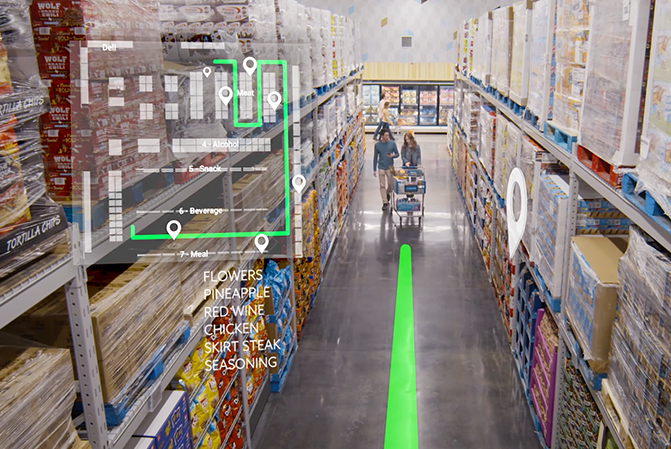A recent article by Fortune projects that in the next 3 years, around 90% of our food will be touched by Artificial Intelligence. AI is reshaping many aspects of our lives, from healthcare to entertainment, but one of the most exciting areas of transformation is the way we eat. From how our food is produced, packaged, and delivered, to how we make decisions about nutrition and diet, AI is increasingly playing a pivotal role. This article will explore the key ways AI is changing our relationship with food and transforming the broader food ecosystem, covering agriculture, personalized nutrition, restaurant automation, and sustainability.
AI in Agriculture: Optimizing Food Production
Food’s journey starts long before it reaches our plates, and AI has transformed food production. The agricultural sector faces challenges like climate change, soil degradation, and a rising global population. AI tools are helping to overcome these issues, promoting smarter and more sustainable farming practices.
Precision Agriculture
AI-driven precision agriculture leverages data analytics, machine learning, and satellite imagery to enhance crop management. Farmers can collect data on soil conditions, moisture, and pest threats, which AI algorithms analyze for real-time recommendations on planting, irrigation, and harvesting. For instance, Blue River Technology, acquired by John Deere, has developed AI-powered robots that target weeds with up to 90% less herbicide. Drones with AI sensors can monitor growth, detect diseases early, and assess fruit ripeness.
Predictive Analytics for Yields and Weather
AI models enhance crop yield predictions, allowing farmers to manage resources effectively and optimize planting and harvesting times. These advancements reduce crop loss risks from unexpected weather events, increase yield, and lower environmental impact, thus strengthening the global food supply chain. For example, Beyond Weather’s Yield Forecaster combines long-term weather forecasts with AI, offering insights into yields up to 8 months ahead. This leads to better resource management and cost savings, with the model outperforming traditional USDA Crop Outlooks, helping farmers mitigate risks more effectively.
Personalized Nutrition: Tailoring Diets to Individual Needs
As health consciousness grows, so does the demand for personalized nutrition solutions. AI plays a key role in enabling tailored dietary recommendations based on individual needs, preferences, and genetic information.
AI-Powered Diet Recommendations
Personalized nutrition platforms such as Suggestic, Season Health, Heali AI, use AI to analyze an individual’s genetic makeup, microbiome, lifestyle, and health goals. By interpreting this data, AI systems can suggest optimal diets tailored to enhance well-being, manage weight, or prevent chronic diseases like diabetes or hypertension.
Fresh Fitness Food utilizes AI for personalized diet recommendations through a meal-balancing engine developed by Calcey. This solution employs advanced optimization techniques to create tailored meal plans based on individual dietary needs and preferences. It adapts dynamically to real-time feedback, ensuring balanced and customized meals. This innovative approach allows FFF to scale its service while enhancing customer satisfaction and operational efficiency.
AI in Nutrigenomics
Nutrigenomics studies how genes interact with food, benefiting significantly from AI. AI analyzes extensive genetic and clinical data to create precise dietary recommendations based on individual genetic predispositions, such as lactose intolerance or gluten sensitivity. LifeNome leads the field with its Genomics AI® technology, assessing over 50 nutritional characteristics from DNA to provide tailored diets. Another innovator, DayTwo, predicts blood sugar responses using gut microbiome information, leading to reported health improvements like weight loss and reduced AC1 levels.
AI in Restaurants: Automating and Enhancing the Dining Experience
AI influences not only what we eat but also how and where we eat. Restaurants rapidly adopt AI to optimize everything from food preparation to customer service.
AI-Driven Kitchens
AI-powered robots, like Miso Robotics’ Flippy, are transforming restaurant kitchens by performing tasks such as flipping burgers and frying food with precision. Flippy adjusts cooking time and temperature and is used by chains like White Castle and Jack in the Box. Miso Robotics holds over 25 patents and also operates a Robot and AI-powered pop-up store in Los Angeles.
Optimizing Menus and Customer Experience
Restaurants are leveraging AI to enhance customer experiences. For instance, IHOP partnered with Google Cloud to use Recommendations AI in its online ordering, resulting in a 20% increase in sales and a 15% rise in recommended item purchases. The AI system provided ten times more valuable customer insights than manual methods, achieving over 90% accuracy in predicting preferences. Similarly, AI platforms like Halla by Wynshop help optimize menus based on customer preferences and trends, boosting satisfaction and loyalty..
Chatbots and Contactless Ordering
In 2023, Starbucks improved its customer experience by adding an AI chatbot, My Starbucks Barista, to its app, enabling voice and text orders. This streamlined the process, enhancing user engagement and satisfaction. Meanwhile, McDonald’s tested an AI drive-thru system with IBM but halted the pilot in mid-2024 due to order inaccuracies. Despite this, McDonald’s remains hopeful for future AI voice-ordering solutions.
AI in Food Delivery and Supply Chain: Enhancing Efficiency and Sustainability
AI is streamlining food delivery services and optimizing the broader food supply chain, making it faster and more environmentally friendly.
AI-Powered Delivery Systems
With the growing demand for food delivery services, AI has become a key player in enhancing delivery speed and efficiency. Earlier this year, Best Buy announced an AI-powered delivery tracking system that provides minute-by-minute updates. Moreover, Serve Robotics, Uber’s spinout company that is creating autonomous sidewalk delivery robots, is expanding its services following a successful first year of operations in Los Angeles. It plans to launch 2000 new robots in 2025 in partnership with Uber Eats.
AI-Powered Inventory Management
AI is helping food suppliers manage their inventory more efficiently, reducing food waste and costs. AI algorithms can predict how much food should be ordered or produced by analyzing consumer demand, weather conditions, and historical data. For instance, through its proprietary technology, Walmart leverages historical data and pairs it with predictive analytics. They can strategically place holiday items across distribution and fulfillment centers and stores, optimizing the shopping experience.

Source: Walmart Global Tech
AI and Food Safety & Sustainability: Enhancing Quality Control and Reducing Food Waste
Ensuring food safety is paramount in today’s globalized food system, and AI is becoming a crucial tool in detecting foodborne pathogens, allergens, and other contaminants.
Automated Quality Inspections
AI-powered image recognition tools are increasingly used for quality control in food processing plants. Companies like Tomra have developed AI-based sorting machines to detect defects, discoloration, or contaminants while processing fruits, vegetables, and other products. These systems can inspect hundreds of items per minute, far surpassing the capabilities of human inspectors.
Reducing Food Waste
As the world faces the challenge of sustainably feeding a growing population, AI is crucial in reducing food waste and promoting sustainable choices. A 2022 WWF study found AI software achieved a 14.8% reduction in food waste in participating organizations. Companies like Winnow lead this effort, recognizing that sustainable initiatives can differentiate them competitively. For instance, KLM Airlines created the AI model TRAYS for its catering, resulting in a 63% reduction in food waste over three months compared to catering for all booked passengers.
Conclusion
AI is fundamentally transforming how we eat by making food production more efficient, tailoring diets to individual needs, automating restaurant operations, and enhancing sustainability efforts. As AI continues to evolve, we can expect even more innovations to improve the global food system, making it healthier, more personalized, and environmentally friendly. From farm to table, AI is not just changing how we eat—it’s reshaping the entire ecosystem surrounding food.
This shift toward AI-driven solutions is set to redefine our relationship with food in profound ways, making it smarter, more sustainable, and highly individualized. As consumers, we are at the cusp of experiencing a new era in food innovation, powered by artificial intelligence.
